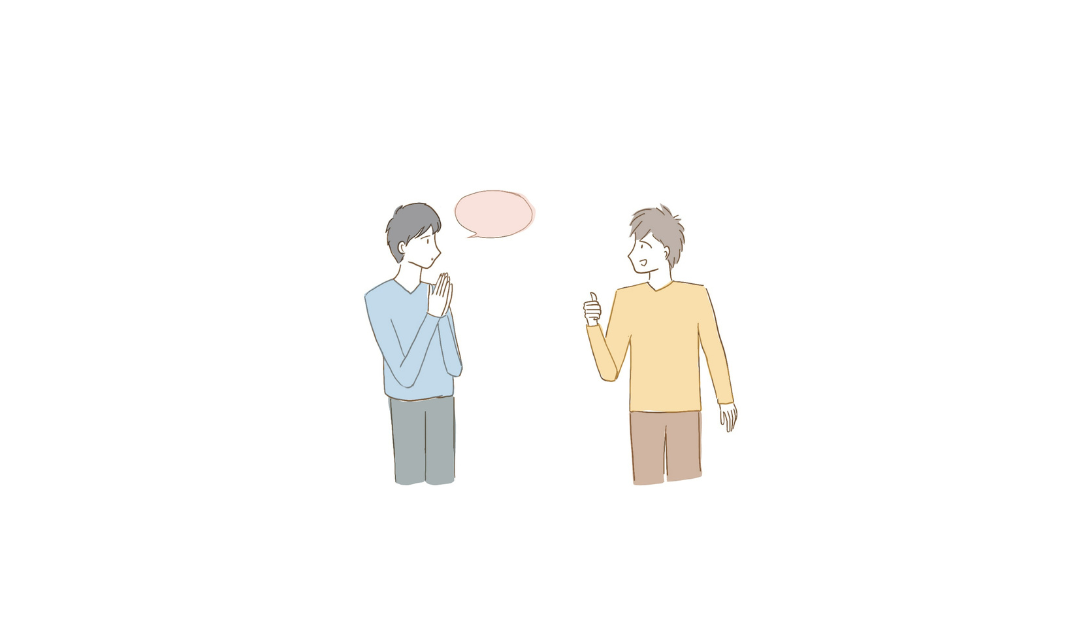
by Calien Trevino | Jun 24, 2024 | Anxiety, General, Trauma- and Stressor-Related Disorders
Hey Guys, Let’s Talk Therapy
Let’s face it, fellas—life can be a rollercoaster. With work stress, relationship drama, and just trying to figure out what we want in life, it’s a lot. Yet, many of us still hesitate when it comes to seeking therapy. Why? Because somewhere along the line, society told us that talking about our feelings makes us weak. Spoiler alert: it doesn’t. In fact, going to therapy can be one of the smartest moves you make. Let’s break down why therapy is a game-changer for men.
Smashing the Stigma
From a young age, many of us were told to “man up” and keep our emotions in check. But here’s the thing: bottling up feelings isn’t healthy. Admitting you need some help is actually pretty badass. It shows self-awareness and the courage to tackle your issues head-on. Therapy is all about breaking that stigma and realizing it’s okay to seek support.
Boost Your Mental Health
Anxiety, depression, and stress are more common than you think. Yet, a lot of guys would rather ignore these feelings than address them. Therapy offers a safe space to talk about what’s going on in your head. A therapist can help you understand your emotions and develop strategies to manage them. Better mental health means a better life overall—simple as that.
Better Relationships
Communication can be tough. Whether it’s with your partner, family, or friends, sometimes it feels like you’re speaking different languages. Therapy can teach you how to express yourself better and understand others more deeply. It’s like getting a user manual for human interaction. And trust me, when your relationships improve, everything else starts to fall into place.
Stress Less
We all know stress sucks, but it’s almost impossible to avoid. Whether it’s work deadlines, financial pressure, or just everyday annoyances, stress is a constant companion. Therapy can equip you with tools to handle stress better, so it doesn’t feel like the world is constantly on your shoulders. Learn how to chill and not let stress run your life.
Personal Growth
Therapy isn’t just about fixing problems; it’s also about growing as a person. It’s like a gym for your mind. You learn about yourself, set goals, and work on becoming the best version of you. Self-awareness and confidence skyrocket when you take time to focus on personal growth. Plus, who doesn’t want to level up in life?
Physical Health Perks
Mental health and physical health are linked. When you take care of your mind, your body benefits too. Lower stress levels can lead to better sleep, improved heart health, and even a stronger immune system. So, think of therapy as an investment in your overall well-being.
Career Gains
Struggling with mental health can impact your job performance and satisfaction. Therapy can help you develop coping mechanisms to handle work-related stress and improve your focus and productivity. Understanding your strengths and weaknesses can also help you make better career decisions and find more satisfaction in your work.
Conclusion
Therapy isn’t just for when you’re in crisis. It’s a proactive step towards living your best life. Breaking the stigma around therapy starts with us. Embracing the help of a professional doesn’t mean you’re weak; it means you’re strong enough to seek the tools you need to thrive. So, why not give it a shot? You owe it to yourself to live a happier, healthier life.

by Calien Trevino | Jun 20, 2024 | Anxiety, General
Hey there, friend! 😊
Today, I want to chat with you about something that might seem a little daunting at first but is actually pretty amazing—therapy. Now, I know the idea of sitting down with a stranger and spilling your guts might sound intimidating, but stick with me, and I’ll explain why therapy works and why it might just be one of the best things you can do for yourself.
It’s All About Connection
First off, therapy is all about connection. When you sit down with a therapist, you’re engaging in a relationship built on trust and understanding. This isn’t just any relationship—it’s one where you can be completely open without fear of judgment. Your therapist is there to listen, really listen, and help you navigate whatever it is you’re going through. Sometimes, just having someone genuinely hear you can make all the difference.
A New Perspective
One of the coolest things about therapy is gaining a new perspective. We all get stuck in our own heads sometimes, looping the same thoughts and worries. A therapist can help break that cycle by offering a fresh viewpoint. They can help you see things in ways you might not have considered before, which can be incredibly enlightening and liberating.
Tools for Life
Therapy isn’t just about talking; it’s also about learning. Your therapist can teach you practical tools and strategies to handle stress, anxiety, depression, and other challenges. These are skills you can carry with you throughout your life, making it easier to cope with future hurdles. Think of it as building a toolkit for your mental health.
Unpacking the Past
A lot of our current issues are tied to past experiences. Therapy provides a safe space to explore these connections. By understanding where certain feelings and behaviors come from, you can start to heal old wounds and move forward with a clearer, healthier mindset.
Breaking Patterns
We all have habits and patterns that aren’t always the healthiest. Maybe it’s negative self-talk, avoidance behaviors, or something else entirely. A therapist can help identify these patterns and work with you to break them, leading to more positive and constructive ways of thinking and acting.
Validation and Support
Life can be tough, and it’s easy to feel like you’re alone in your struggles. Therapy provides validation and support from someone who understands and is trained to help. It’s reassuring to know that what you’re feeling is real and that there are ways to work through it.
Self-Discovery
Therapy is also a journey of self-discovery. As you explore your thoughts, feelings, and behaviors, you’ll learn more about yourself than you ever thought possible. This self-awareness can be incredibly empowering and help you make more informed decisions about your life.
It’s for Everyone
One of the biggest myths about therapy is that it’s only for people with “serious” issues. In reality, therapy is for everyone. Whether you’re dealing with a specific problem or just looking to improve your mental health and well-being, therapy can be a valuable resource.
So, there you have it! Therapy is all about connection, perspective, learning, and self-discovery. It’s a tool for breaking old patterns and building new, healthier ones. It offers validation, support, and a safe space to explore your thoughts and feelings. Most importantly, therapy is for everyone.
If you’ve been considering therapy but aren’t quite sure if it’s for you, I hope this post has given you a bit more insight into why it works and how it can be beneficial. Remember, taking care of your mental health is just as important as taking care of your physical health. So why not give it a try? 🌟
Until next time, take care!

by Calien Trevino | Jun 17, 2024 | Anxiety, General
Howdy, fellow learners and future counselors! If you’ve found yourself knee-deep in textbooks, therapy techniques, and endless case studies, you’re probably on the exhilarating journey of being a counseling graduate student. From navigating practicum placements to late-night study sessions, let’s take a moment to celebrate the unique joys that come with this rewarding path.
Connecting Theory with Practice
One of the most exciting parts of being a counseling grad student is bridging the gap between theory and practice. You’ve spent hours delving into psychological theories and therapeutic approaches in class, and now you get to put them into action. Whether it’s through role-playing exercises, mock therapy sessions, or real-world practicum experiences, each interaction is a step toward honing your skills and gaining confidence in your ability to make a difference in people’s lives.
Building Empathy and Understanding
Counseling is all about understanding the human experience—its complexities, struggles, and triumphs. As a grad student, you have the opportunity to deepen your empathy by listening to diverse perspectives and stories. From clients sharing their vulnerabilities to peers discussing their own challenges, every conversation adds layers to your understanding of what it means to support others with compassion and respect.
Finding Your Therapeutic Style
Just like a cowboy finding their favorite hat, being a counseling student allows you to explore different therapeutic styles and approaches. Whether you’re drawn to cognitive-behavioral techniques, person-centered therapy, or mindfulness practices, this is your time to experiment and discover what resonates most with your personal and professional style. Each class discussion, supervision session, and client interaction helps shape the therapist you’re becoming.
The Bond of Community
There’s something special about being part of a cohort of like-minded individuals who share your passion for mental health and helping others. From study groups to coffee breaks between classes, your fellow counseling students become your allies, sounding boards, and support network. Together, you navigate the highs and lows of academic life, celebrating successes and offering encouragement when challenges arise.
Celebrating Small Victories
In the world of counseling, victories come in all shapes and sizes. Maybe it’s the moment a client has a breakthrough in therapy, or when you successfully navigate a challenging case study presentation. As a graduate student, these small victories remind you of the impact you’re capable of making and inspire you to keep pushing forward on your journey toward becoming a licensed counselor.
Mentorship and Growth
Behind every successful counselor-in-training is a mentor who believes in their potential. Whether it’s a faculty member guiding your research or a supervisor offering feedback during practicum, internship plays a crucial role in your growth. Their wisdom and encouragement fuel your passion for learning and provide invaluable insights into the realities of the counseling profession.
Conclusion: Embracing the Adventure
So, whether you’re studying in Austin, Houston, or any corner of this great state of Texas, embrace the joys of being a counseling graduate student. From the excitement of clinical placements to the friendships forged over shared passions, this journey is yours to savor and celebrate. As you continue to learn, grow, and make a difference, remember—the world needs compassionate counselors like you, ready to listen, support, and inspire change one session at a time.
Here’s to the joys of learning, the thrill of discovery, and the rewarding path ahead as you embark on your journey as a counseling graduate student.

by Calien Trevino | Jun 17, 2024 | Anxiety, General, Trauma- and Stressor-Related Disorders
Hey there, everyone! Let’s dive into a topic that can be pretty tough: coping with your parents’ divorce. It’s a big change, and it’s okay to feel all sorts of emotions about it.
First off, know that your feelings are totally valid. It’s normal to feel sad, confused, angry, or even relieved. Divorce affects everyone differently, so give yourself space to process your emotions. Talk to someone you trust—a friend, family member, or counselor—who can listen and offer support. Remember, it’s not your fault. Sometimes, kids blame themselves for their parents’ split, but divorce is between them. Your job is to take care of yourself and focus on your well-being. Communication is key. If you have questions or concerns, talk to your parents openly and honestly. They might not have all the answers, but knowing you can talk to them can ease some of the uncertainty.
Create a routine that gives you stability. With so many changes happening, having a regular schedule can help you feel more in control. Stick to activities you enjoy and spend time doing things that make you feel happy and relaxed. Take care of yourself physically and emotionally. Eat well, get enough sleep, and stay active. Exercise is a great way to blow off steam and boost your mood. Lastly, know that it’s okay to seek help if you need it. Sometimes talking to a therapist can provide valuable support during this challenging time.
Remember, you’re not alone. Many kids go through this, and while it might feel tough now, things will get better with time. Hang in there, take it one day at a time, and be kind to yourself.

by Calien Trevino | Jun 17, 2024 | Anxiety, General, Trauma- and Stressor-Related Disorders
Hey there, folks! Today, let’s dive into a topic that hits close to home for many of us: healing from a broken heart. Whether you’re going through a recent breakup or still reeling from an old wound, dealing with heartbreak is tough, but it’s also a journey of growth and self-discovery.
First off, it’s okay to feel all the feels. Heartbreak can bring up a whirlwind of emotions—sadness, anger, confusion, you name it. Give yourself permission to grieve. Cry it out, journal your thoughts, or talk to a trusted friend. Processing your feelings is the first step toward healing.
Next, take care of yourself. Self-care isn’t just a buzzword; it’s essential when you’re healing from emotional pain. Make time for activities that nourish your soul—whether it’s exercise, meditation, indulging in your favorite hobbies, or simply getting enough rest. Treat yourself with kindness and compassion. It’s also helpful to lean on your support system. Surround yourself with people who lift you up and understand what you’re going through. Don’t hesitate to reach out for emotional support when you need it. Sometimes, just talking things out can lighten the load.
While it’s tempting to dwell on what went wrong or what could have been, try to focus on the present moment and the future ahead. Set small goals for yourself and take steps toward personal growth. Rediscover old passions or explore new interests. Embracing new experiences can help shift your focus and build a sense of purpose. Forgiveness, both for yourself and your ex-partner, is another crucial part of healing. Holding onto resentment or bitterness only prolongs the pain. Accept that relationships end for various reasons, and forgiving doesn’t mean forgetting—it means freeing yourself from emotional baggage.
Lastly, give yourself time. Healing from a broken heart isn’t a race; it’s a gradual process. Be patient with yourself and trust that with each passing day, you’re getting stronger and closer to finding peace. Remember, everyone’s healing journey is different, and there’s no one-size-fits-all solution. Trust your instincts, take it one day at a time, and know that brighter days are ahead. You’ve got this!

by Calien Trevino | Jun 17, 2024 | Anxiety, General, Trauma- and Stressor-Related Disorders
Hey there, friends! Today, let’s chat about something super important: boundaries. We all have them, whether we realize it or not. Boundaries are like the invisible lines we draw around ourselves to protect our emotions, time, and energy. They’re crucial for building healthy relationships and maintaining our well-being.
First off, what exactly are boundaries? Simply put, they’re guidelines we set for how we want to be treated and what we’re willing to tolerate. Setting boundaries isn’t about being selfish or shutting people out—it’s about respecting ourselves and others.
So, how do you know if you need to set boundaries? Well, if you often feel overwhelmed, drained, or taken advantage of in your relationships, it might be a sign that your boundaries need some reinforcement. Setting boundaries starts with knowing your limits and communicating them clearly. For example, if you need alone time after work to recharge, let your friends or family know that you appreciate their company but need some space.
It’s also important to listen to your instincts. If something doesn’t feel right or if someone consistently disregards your feelings, it’s okay to speak up and assert your boundaries. Remember, you deserve to feel safe and respected in all your relationships.
Boundaries can also be about saying “no” without guilt. It’s okay to decline invitations or requests that don’t align with your values or priorities. Your time and energy are valuable, so use them wisely. But boundaries aren’t just about setting limits. They’re also about honoring other people’s boundaries. Respect goes both ways in a healthy relationship, so listen to others’ needs and be mindful of how your actions affect them.
Lastly, don’t be afraid to adjust your boundaries as needed. Life changes, and so do our needs. Being flexible and open to reassessing your boundaries can help you maintain balance and harmony in your relationships. Remember, setting boundaries isn’t always easy, but it’s essential for your well-being and the health of your relationships. So, take a deep breath, tune into your needs, and start drawing those lines where they matter most. You’ve got this!
Page 5 of 6« First«...23456»

















